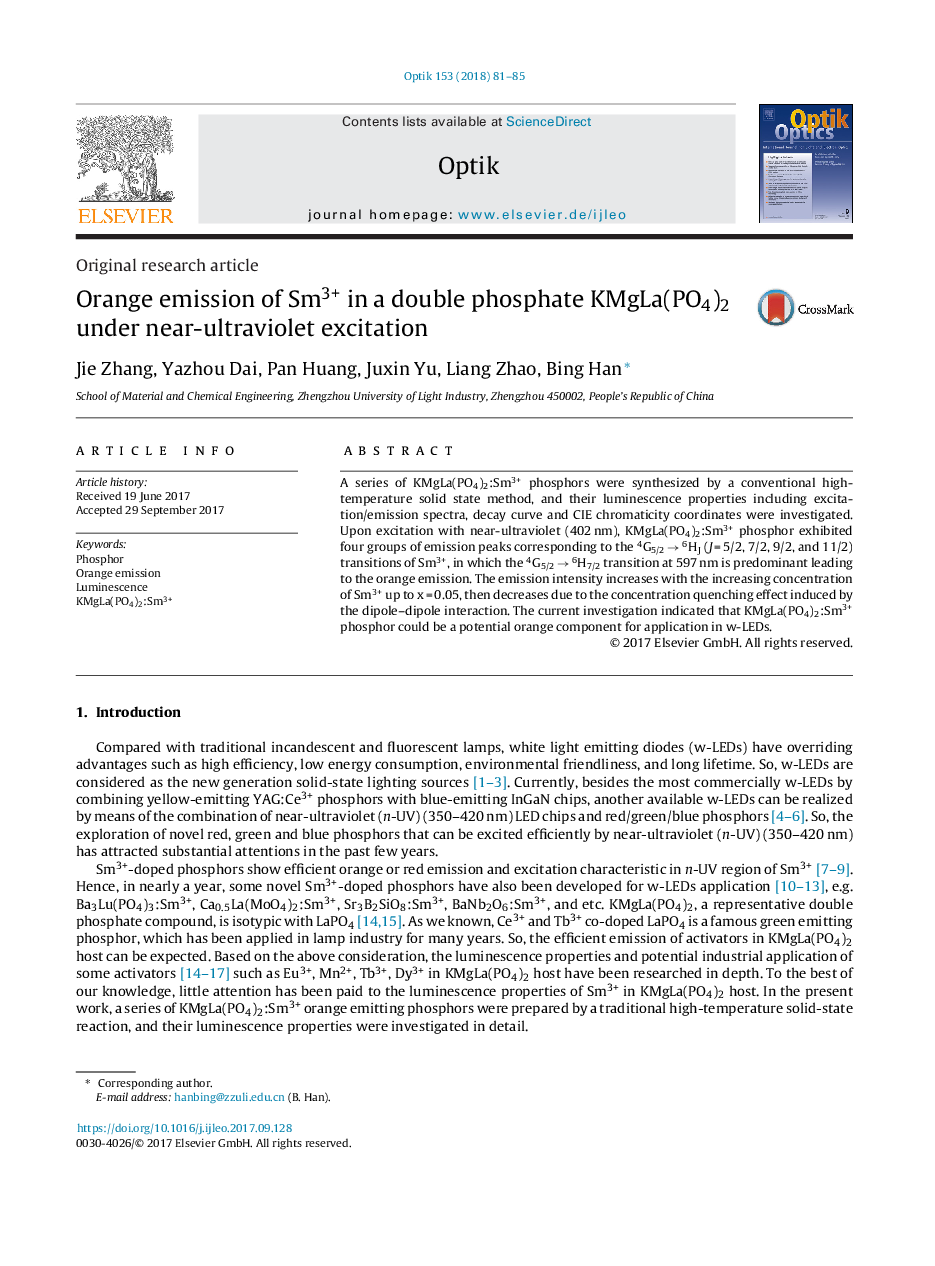| Article ID | Journal | Published Year | Pages | File Type |
|---|---|---|---|---|
| 5024887 | Optik - International Journal for Light and Electron Optics | 2018 | 5 Pages |
Abstract
A series of KMgLa(PO4)2:Sm3+ phosphors were synthesized by a conventional high-temperature solid state method, and their luminescence properties including excitation/emission spectra, decay curve and CIE chromaticity coordinates were investigated. Upon excitation with near-ultraviolet (402 nm), KMgLa(PO4)2:Sm3+ phosphor exhibited four groups of emission peaks corresponding to the 4G5/2 â 6HJ (J = 5/2, 7/2, 9/2, and 11/2) transitions of Sm3+, in which the 4G5/2 â 6H7/2 transition at 597 nm is predominant leading to the orange emission. The emission intensity increases with the increasing concentration of Sm3+ up to x = 0.05, then decreases due to the concentration quenching effect induced by the dipole-dipole interaction. The current investigation indicated that KMgLa(PO4)2:Sm3+ phosphor could be a potential orange component for application in w-LEDs.
Keywords
Related Topics
Physical Sciences and Engineering
Engineering
Engineering (General)
Authors
Jie Zhang, Yazhou Dai, Pan Huang, Juxin Yu, Liang Zhao, Bing Han,
